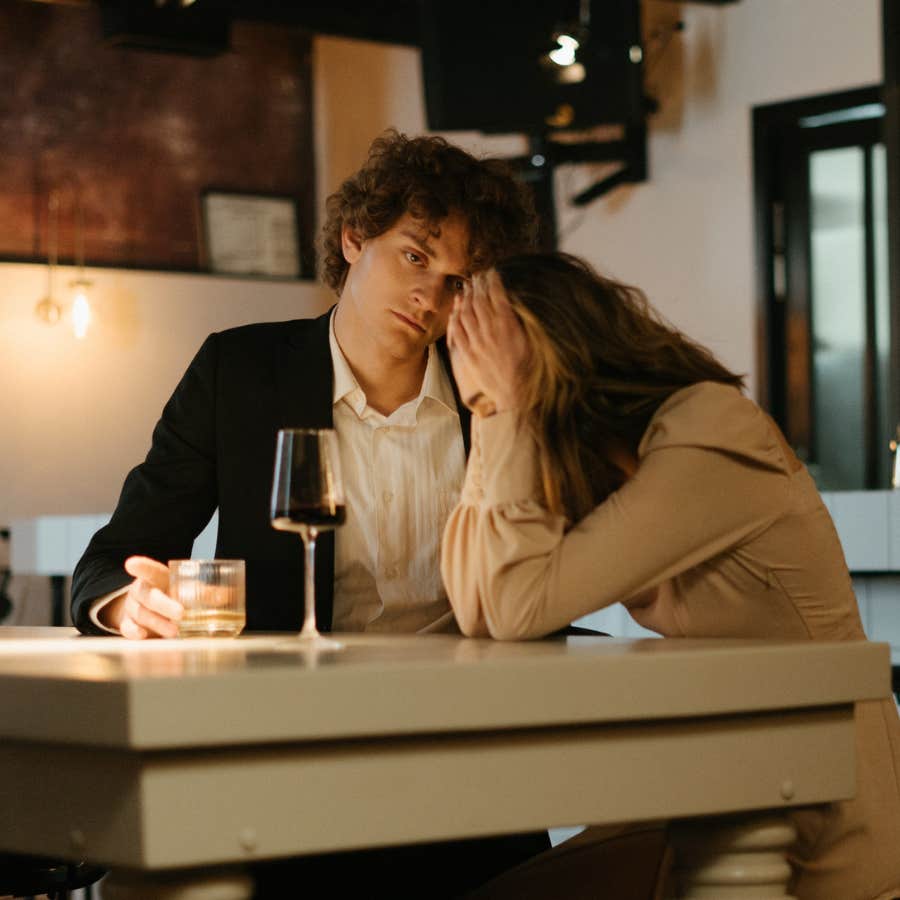Psychologist Explains The Biggest Lie In Relationship Pop Psychology — And It’s All Over Social Media
Just because we want to react in a certain way to conflict, doesn't mean we have the tools to do so.
 Alex Green / Pexels
Alex Green / Pexels In a recent TikTok post discussing insecure attachment theory, Doctor Sarah Hensley introduced herself as a “specialized social psychologist, which is the study of social interaction.”
“I have spent my entire adult life studying relationship science,” she explained. “I’ve seen thousands of clients, helping them transform their relationships.” She clarified that the clients she sees are usually on the verge of divorce, or involved in “what they feel is a hopeless situation.”
The psychologist defined what she sees as "the biggest lie in relationship psychology."
According to Dr. Hensley, the ‘If they wanted to, they would,’” phrasing that’s all over social media is “generic pop psychology."
She then went on to clarify why the phrase doesn’t hold water. Dr. Hensley believes that the phrase “if they wanted to, they would,” is hugely untrue, due to “a large majority of the population [having] dismissive avoidant attachment.”
She stated that people’s attachment styles are formed in childhood, in relation to caregivers. According to Dr. Hensley, people with a dismissive avoidant attachment style are triggered by both closeness and conflict. She described the way someone with a dismissive avoidant attachment style reacts to both these triggers, through a “level one flee response, and a level two freeze response, [as] their nervous system becomes activated.”
“They have so many subconscious wounds around feeling trapped, feeling stuck, feeling controlled, feeling incompetent to meet someone’s needs, feeling defective on the inside, and [are] unable to express vulnerability,” she stated. When someone who’s dismissive-avoidant is faced with either emotional intimacy or conflict, their triggers are tapped into and their trauma response kicks on.
Dr. Hensley explained that most people struggle to navigate through their trauma responses with healthy coping skills.
For people whose wounds are activated by both closeness and conflict, “just overriding” that response feels impossible. She said that people in that situation need to “get the tools to regulate their trauma response and learn secure and healthy behaviors.”
 Photo: cottonbro studio / Pexels
Photo: cottonbro studio / Pexels
If people don’t have healthy coping skills, showing up for another person "isn’t a want issue, it’s a capacity issue."
Dr. Hensley offered context for her explanation, detailing a scenario she sees often in her practice. She often works with people who tell her, “I really love my partner, I really wanna show it better. I don’t know why I shut down. I don’t know why I freeze up, and I just don’t know what to say and I don’t know what to do.”
Dismissive avoidant clients in her practice have reported that they freeze up during conflict. Their mind goes blank; they feel numb and terrified. In Dr. Hensley’s example of a person in that experience, they explain their freeze reaction as “just [feeling] that numb feeling, and I don’t know what to do to make it better. So I slink away and I try to think it out, and then I’m just hoping and praying it kind of goes away because I feel completely overwhelmed and not able to know what to do to make the situation better.”
An avoidant dismissive person’s response to being triggered is to try and get away — they freeze, then flee.
Dr. Hensley believes that society judges that particular response as worse than a fight response, which she describes as a “trauma response where people will… yell and scream and throw things and get verbally aggressive and maybe even sometimes physically aggressive.”
She distilled the main issue at hand, which is that no one trauma response is better or worse than another.
Yet in order to show up in our relationships, we have to do the work to heal.
“Just because one person’s trauma response is different than another person’s doesn’t make it better or worse,” she explained. “All insecure attachments have trauma responses that are unproductive inside relationships.”
She offered tactics for responding in healthy ways to trauma, which included learning to “regulate the nervous system and heal the trauma response and learn what to do differently.”
“The brain is capable of that,” she said, “but most people do not have the right tools.”
The first step in creating change in how we relate to the people we love is to realize what, exactly, our trauma responses are.
Once we gain that information, it’s up to us to seek out ways to build up our emotional toolsets, so as to not continually blame our trauma for behaviors that hurt us or those around us.
Dr. Hensley makes a solid point, which is that understanding where our wounds come from allows us to work on ourselves, and show up more authentically for ourselves and our loved ones.
Alexandra Blogier is a writer on YourTango's news and entertainment team. She covers relationships, pop culture analysis and all things to do with the entertainment industry.
